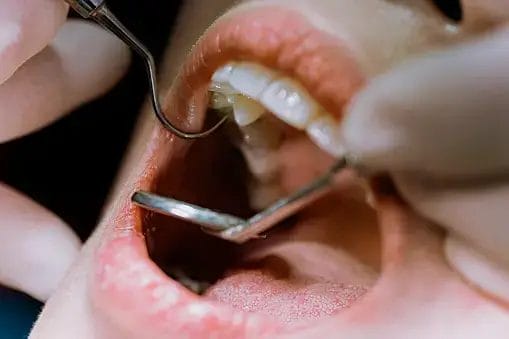Root Canal
All Services

Root canals are highly successful in saving teeth and relieving pain associated with dental infections. While the procedure has a reputation for being uncomfortable, advancements in dental techniques and anesthesia have made it much more tolerable for patients.
It's important to note that delaying or avoiding a necessary root canal can lead to the spread of infection, severe pain, and the potential loss of the affected tooth. If you experience symptoms of a dental infection, it's crucial to seek prompt dental care for an evaluation and appropriate treatment.
Why Us
It seems like there might be a misunderstanding in your question. If you’re asking why a root canal might be necessary for an individual, here are some common reasons:
-
Infected or Inflamed Pulp: The most common reason for a root canal is an infection or inflammation of the pulp inside the tooth. This can occur due to deep tooth decay, a cracked or fractured tooth, or traumatic injury. If the infection is left untreated, it can lead to severe pain, swelling, and the potential loss of the tooth.
-
Severe Toothache: A persistent and severe toothache, especially when chewing or applying pressure, can be an indication that the pulp inside the tooth is compromised. Root canal therapy can alleviate the pain by removing the damaged or infected pulp.
-
Prolonged Sensitivity to Hot or Cold: Sensitivity to hot or cold temperatures that lingers after the stimulus is removed can be a sign of pulp damage. If this sensitivity is not addressed, it may progress to more severe pain.
-
Abscess or Pimple on the Gums: An abscess, which is a pocket of pus, may develop at the root of a tooth when the pulp is infected. This can lead to the formation of a pimple-like swelling on the gums. Root canal treatment is often necessary to address the underlying infection.
-
Darkening or Discoloration of the Tooth: Changes in the color of a tooth, such as darkening or discoloration, may indicate damage to the pulp. A root canal can help preserve the tooth and prevent further discoloration.
-
Cracked or Fractured Tooth: If a tooth is cracked or fractured, bacteria can enter and infect the pulp. Root canal therapy may be needed to remove the damaged pulp, clean the area, and seal the tooth.
-
Avoiding Tooth Extraction: Root canal treatment is often performed to save a tooth that might otherwise need to be extracted. Preserving natural teeth is generally preferred whenever possible.
-
Preventing Spread of Infection: A root canal helps prevent the spread of infection to surrounding tissues, reducing the risk of more serious health issues.
It’s important to note that the decision to recommend a root canal is made by a dentist or endodontist based on a thorough examination, diagnostic tests, and consideration of the patient’s overall oral health. If you are experiencing symptoms that may indicate the need for a root canal, it’s crucial to consult with a dental professional for a proper evaluation and appropriate treatment.
FAQ
What is a root canal?
In general, it is recommended to have a professional teeth cleaning every six months. However, the frequency may vary based on individual oral health needs. Your dentist or dental hygienist will provide guidance on the ideal schedule for your specific situation.
Why might someone need a root canal?
Teeth cleaning is typically not painful. During the cleaning, you may feel some pressure and scraping as the dental professional removes plaque and tartar. If you experience discomfort, it’s essential to communicate with the dental team, as they can make adjustments to ensure your comfort.
How can I tell if I need a root canal?
It’s generally recommended not to eat a heavy meal before a dental cleaning, as the process involves various tools and instruments in your mouth. However, having a light meal should not pose a problem. Drinking water is usually fine.
Does a root canal hurt?
The duration of a teeth cleaning appointment can vary depending on factors such as the extent of plaque and tartar buildup, the thoroughness of the cleaning, and any additional treatments needed. On average, a routine cleaning appointment may take 30 minutes to an hour.
How long does a root canal procedure take?
X-rays are not always taken during a routine cleaning, but your dentist may recommend them periodically to assess the health of your teeth and identify any issues not visible during the clinical examination.
What happens after a root canal?
Professional teeth cleaning can help remove surface stains from your teeth through the polishing process. However, for deeper stains, additional whitening treatments may be recommended.
Can a tooth with a root canal still feel pain?
Many dental insurance plans cover routine teeth cleaning as a preventive measure. However, coverage may vary, so it’s essential to check with your insurance provider to understand the details of your plan.
What is the success rate of root canals?
It’s a good practice to maintain your regular oral hygiene routine, but avoid aggressive brushing right before your appointment, as it may cause gum irritation. Your dental professional can better assess your oral health if you’ve maintained your usual routine.
Can I delay or avoid a root canal?
To maintain good oral hygiene, brush your teeth twice a day, floss daily, use an antiseptic mouthwash if recommended by your dentist, and follow a balanced diet low in sugary foods and drinks.




